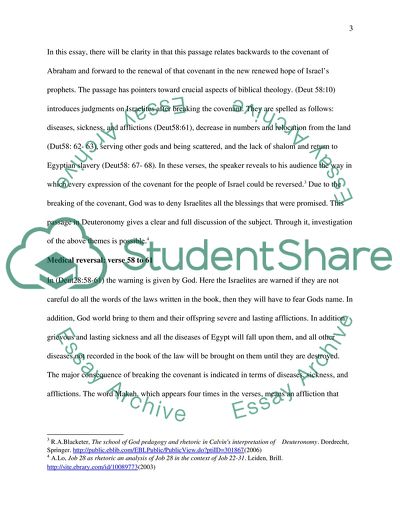Cite this document
(Curse of Covenant Reversal - Deuteronomy Literature review Example | Topics and Well Written Essays - 1500 words, n.d.)
Curse of Covenant Reversal - Deuteronomy Literature review Example | Topics and Well Written Essays - 1500 words. https://studentshare.org/religion-and-theology/1823651-deuteronomy
Curse of Covenant Reversal - Deuteronomy Literature review Example | Topics and Well Written Essays - 1500 words. https://studentshare.org/religion-and-theology/1823651-deuteronomy
(Curse of Covenant Reversal - Deuteronomy Literature Review Example | Topics and Well Written Essays - 1500 Words)
Curse of Covenant Reversal - Deuteronomy Literature Review Example | Topics and Well Written Essays - 1500 Words. https://studentshare.org/religion-and-theology/1823651-deuteronomy.
Curse of Covenant Reversal - Deuteronomy Literature Review Example | Topics and Well Written Essays - 1500 Words. https://studentshare.org/religion-and-theology/1823651-deuteronomy.
“Curse of Covenant Reversal - Deuteronomy Literature Review Example | Topics and Well Written Essays - 1500 Words”. https://studentshare.org/religion-and-theology/1823651-deuteronomy.


